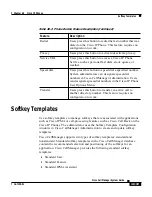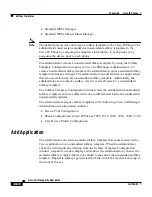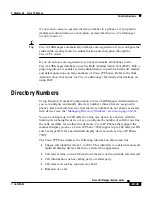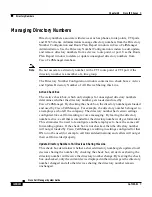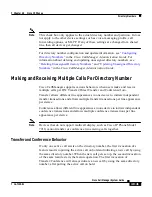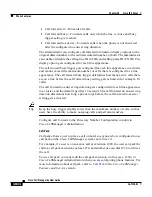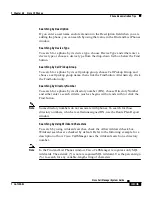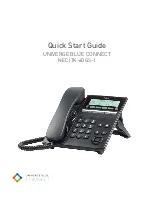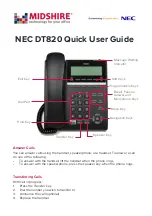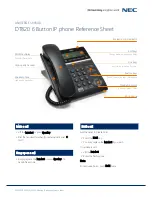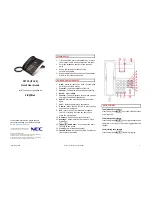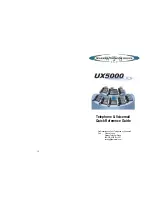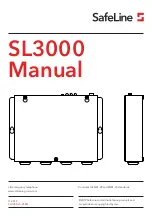
40-31
Cisco CallManager System Guide
OL-7135-01
Chapter 40 Cisco IP Phones
Directory Numbers
Note
This check box only applies to the actual directory number and partition. It does
not apply to the other device settings such as voice-messaging profile, call
forwarding options, or MLPP. If any of these settings are changed for a shared
line, then all devices get changed.
For directory number configuration and update information, see
“Configuring
Directory Numbers”
in the Cisco CallManager Administration Guide. For
information about deleting and updating unassigned directory numbers, see
“Deleting Unassigned Directory Numbers”
and
“Updating Unassigned Directory
Numbers”
in the Cisco CallManager Administration Guide.
Making and Receiving Multiple Calls Per Directory Number
Cisco CallManager supports various behaviors when users make and receive
multiple calls per DN: Transfer/Direct Transfer and Conference/Join.
Transfer allows different line appearances in one device to initiate independent
transfer transactions and allows multiple transfer transactions per line appearance
per device.
Conference allows different line appearances in one device to initiate independent
conference transactions and allows multiple conference transactions per line
appearance per device.
Note
Devices that do not support multicall display, such as Cisco IP Phone Model
7910, cannot transfer or conference two existing calls together.
Transfer and Conference Behavior
If only one active call exists on the directory number, the first invocation of a
feature results in putting the active call on hold and initiating a new call by using
the same directory number. When the new call gets set up, the second invocation
of the same feature starts the feature operation. The first invocation of
Transfer/Conference will always initiate a new call by using the same directory
number, after putting the active call on hold.



